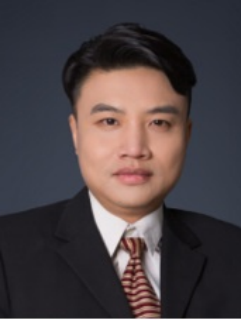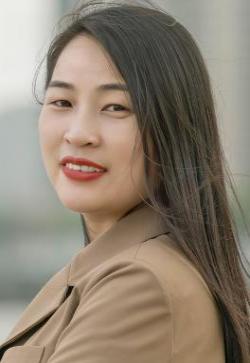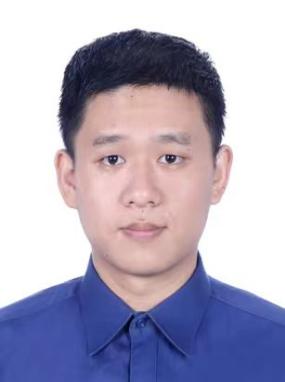| CEC-2024 Special Session on Software Systems with Evolutionary Computation |
| 发布时间: 2023-08-30 浏览次数: 203 |
|
Organized by Prof. Han Huang, Dr. Xueming Yan and Dr. Chaoda Peng Contact email: hhan@scut.edu.cn, yanxm@gdufs.edu.cn Website: https://wcci2024.org/ Scope and Topics The Special Session on Software Systems with Evolutionary Computation was a captivating and knowledge-rich event that gathered experts and researchers to explore the fusion of evolutionary computation techniques with software systems. The session covered diverse themes, including algorithm design and optimization, parallel and distributed computing, real-world applications, and evolutionary machine learning integration. Attendees witnessed cutting-edge software tools and frameworks tailored for evolutionary computation, opening new avenues for efficient algorithm development and deployment. With a focus on hybrid methods and their superior performance, the session unveiled the potential of evolutionary computation to tackle complex problems across various domains, including autonomous agents and robotics. Participants also gained insights into visualization, analysis techniques, and performance evaluation, promoting a deeper understanding of evolutionary algorithms. Overall, the session fostered collaboration, sparked new research ideas, and left attendees inspired to drive forward the frontiers of evolutionary computation with software systems. The topics of this special session include but are not limited to the following topics:
Han Huang (Senior Member, IEEE) received the B.Man. degree in information management and information system from the School of Mathematics, South China University of Technology (SCUT), Guangzhou, China, in 2003, and the Ph.D. degree in computer science from SCUT in 2008. He is currently a full professor and doctoral supervisor of the School of Software Engineering at South China University of Technology. He is currently serving as an associate editor of IEEE Transactions on Evolutionary Computation (IF: 16.497), Complex & Intelligent Systems (IF: 5.8) and IEEE Transactions on Emerging Topics in Computational Intelligence (IF: 5.3), and Director of Teaching Steering Committee for Software Engineering of Undergraduate Colleges and Universities in Guangdong Province. Prof. Huang has made great contributions to the scholarship on the theories and application of intelligent optimization algorithms. For example, he has proposed a time complexity analysis method of real-world evolutionary algorithms, algorithms for efficient and accurate image matting, a method for automated test case generation based on path coverage, etc. Prof. Huang has hosted more than twenty national and provincial projects. He has published two books, Theory and Practice of Intelligent algorithm and Theory, Methods and Tools for Time Complexity Analysis of Evolutionary Algorithm. He has also published more than 80 papers in IEEE TCYB, IEEE TETC, IEEE TSE, IEEE TEVC, IEEE TIP, IEEE TFS, and Science China, including ESI highly cited papers. As the first inventor, Prof. Huang has 41 invention patents granted in China and seven invention patents granted in the United States. He won China Patent Excellence Award and developed an association standard entitled “Standard for glass-box testing without source code” as the first completer. Additionally, Prof. Huang pays attention to social services. Over the past five years, he has given more than 50 public lectures on science and technology for government offices, primary and secondary schools, CCF, YOCSEF, media, etc. He has been in charge of the development and release of six public software systems such as Unit Test Algorithm Platform www.unittestpc.com.cn, Automatic Structural Equation Modeling System www.autosem.net, Evolutionary Algorithm Time Complexity Analysis System www.eatimecomplexity.net, and Energy Storage Optimization System (http://energystorage.autosem.net), which have provided free technical service and support for lots of researchers and engineers.
Xueming Yan received the Ph.D. degree in computer science from the South China University of Technology, Guangzhou, China, in 2018.She was a visiting scholar at the University of Surrey in the UK, and a postdoctoral researcher at the Bielefeld University in Germany. She is currently an associate professor with the School of Information Science and Technology, Guangdong University of Foreign Studies, Guangzhou, China. Her research interests include graph neural networks, optimization, and natural language processing.
Chaoda Peng received the Ph.D. degree from the School of Automation, Guangdong University of Technology, Guangzhou, China, in 2019. He was a visiting Ph.D. student with the Department of Electrical and Computer Engineering, Michigan State University, East Lansing, MI, USA. He is currently a lectuter with the College of Mathematics and Informatics, South China Agricultural University, Guangzhou, China. His current research interests include constrained multiobjective evolutionary computation, UAV path planning, and mobile edge computing.
|





